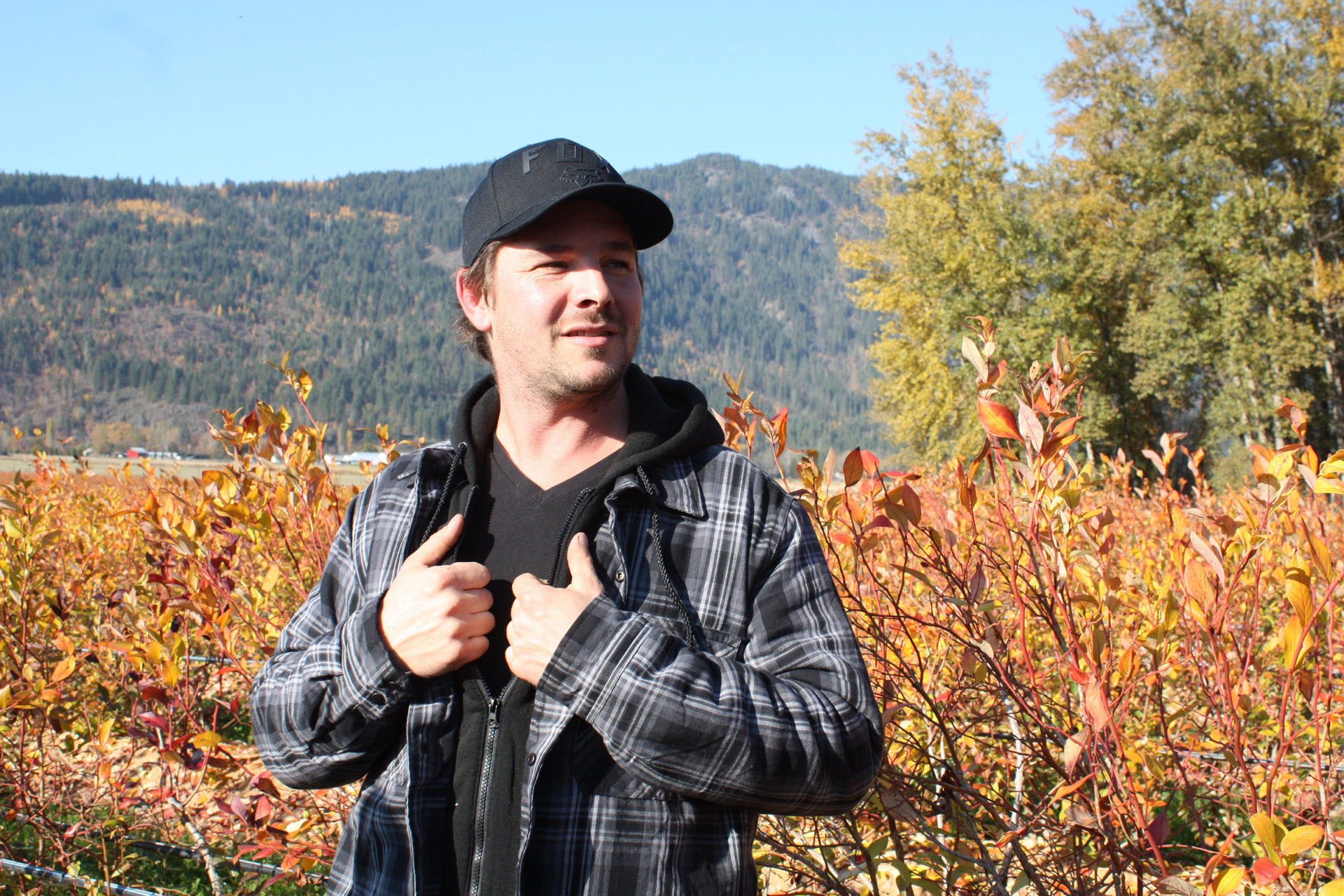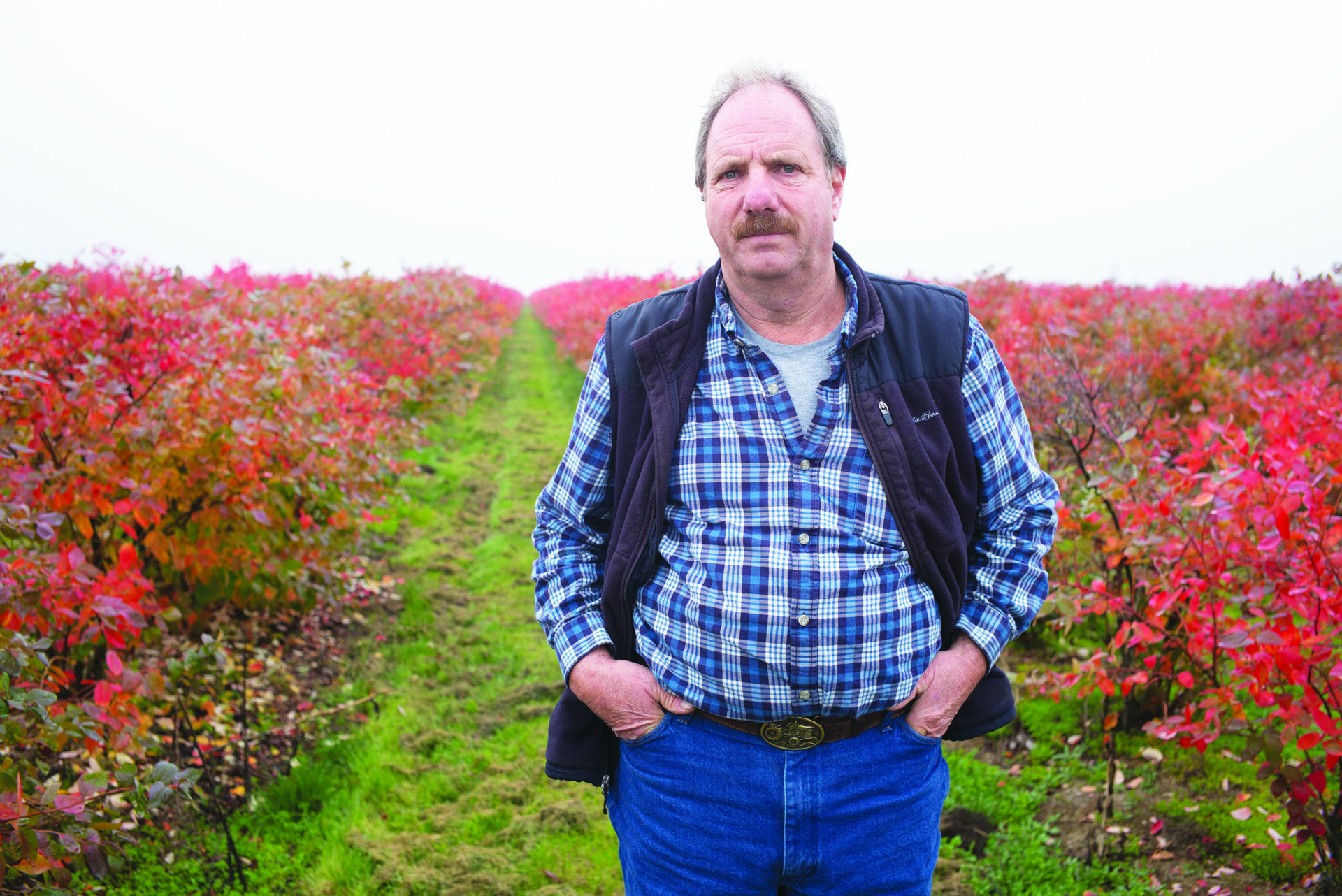GRINDROD – A farm tour aimed at food influencers did more than open eyes, it changed minds.
A group including chefs, food bloggers, nutritionists and dietitians toured three North Okanagan farms October 23 with agriculture industry representatives for a behind-the-scenes look at the farms. The tour was a chance to taste local products and ask questions about food production and farm practices.
We Heart Local, an initiative of the BC Agriculture Council launched in 2014, hosted the tour in partnership with Buy BC: Eat Drink Local, the province’s two-year-old initiative with the BC Restaurant and Food Services Association. The tour aimed to create connections between consumers and BC’s agriculture community.
“We are working to build consumers’ confidence that the food purchased from local producers is safe and very high quality,” explains BCAC community trust manager Becky Parker. “We conducted pre- and post-surveys with the participants and found that 89% found the tour to be an effective way to learn more about farming and the food system.”
The surveys showed that participants’ level of trust in agricultural practices increased after the tour. For example, tour participants all agreed that farmers produce safe, high-quality food and that they care about the animals they raise versus 70% before the tour. All participants also agreed that farmers are transparent about production practices, versus just 10% before the tour.
There was also greater agreement that farmers are environmentally conscious, with 78% of tour participants believing this compared to 10% before.
The tour started at Okanagan Riverbend Poultry in Grindrod, a free range and soon-to-be organic and SPCA-certified chicken layer barn.
The quality of the eggs produced and the health of the 3,300 chickens were topmost concerns for tour participants.
Owner Jared de Dood explained his three-tier aviary system that gives the birds space to run, fly, roost and eat with access to the outdoors, a system that has resulted in daily production of about 3,100 eggs since he started his first flock in May.
“When I came here, the very first day, I packed six eggs out of 3,300 birds that were placed in there,” de Dood says.
He opened his books detailing his daily, weekly and monthly reporting requirements; showed the barn’s computer systems that help monitor bird health, lights, feeding and more; and explained how eggs are collected and packed for grading.
“What you’re seeing is eggs coming from the farm to the grocery store within four to seven days. That’s how fresh our products are,” he notes.
A look inside the aviary revealed quiet, content birds which quickly adapted to the visitors.
A delicious lunch next door at Farmer John’s Market, operated by Jared’s parents, John and June de Dood, featured a starter, entree and dessert created with ingredients sourced from Okanagan farms that wowed the group and sparked a deeper interest in local products.
Lunch was also an opportunity for everyone to see the de Dood’s state-of-the-art robotic dairy, Sunninghill Holsteins.
A short drive to Mara brought the group to 60 acres of blueberries at Madalea Farms, where owner AJ Stobbe explained how the fruit helped diversify his family’s dairy farm and filled a need for local berries in the North Okanagan.
“I have pretty good success going into a store with Okanagan blueberries and they’re pretty excited about the merchandise,” Stobbe says. “It’s been so fun because a lot of the stores are saying, ‘There’s local blueberries? How come we didn’t know about you? Yes, bring some.’”
He explained the need to use foreign workers to meet labour requirements, blueberries’ growth cycle and answered questions about the use of chemicals in plant health.
“This year we didn’t spray a single insecticide. We spray some fungicide and we spray a fair amount of fertilizer to keep the plants healthy and we give the plants enough nutrients to fend off insects themselves,” Stobbe explains. “In our school of thought, we can’t go organic because we need to feed the plant.”
A stop at Serene Lea Farms, the Stobbe family’s 200-head dairy, followed.
Stobbe outlined the milking process, described the geothermal system that uses heat from the milk for heating and cooling the farm and stressed the importance of nutritionally balanced rations for his herd.
“We’re a little bit different here. We have a grain mill so we make our own calf grain. I balance it with my nutritionist; I’m always tweaking it a little bit,” he says.
The birth of a calf aided by Stobbe and his father Abe highlighted this part of the tour and gave everyone a first-hand example of the care provided by farmers to their animals.
A cheese tasting, courtesy of cheesemaker Sandra Proulx, wrapped up the afternoon.
Proulx, long-time cheesemaker at Terroir Cheese in Armstrong, purchased the business six months ago. She brought along her two Brie-style cheeses: Goaty Cow and Mt. Ida, and provided lots of delicious recipe ideas.
Proulx plans to open a new facility in Kaleden next summer where she can produce a full line of cheeses and do retail sales.
Sysco Kelowna corporate chef Brent Durec says Sysco organizes a Vancouver tour each year featuring many large producers but local connections are just as important.
“We want to support local farmers and offer a wider product to the customer,” he says. “It’s always interesting finding the different farms and products.”
Kelowna Yacht Club executive sous chef Jeff Burns said Sysco’s ability to pick up fresh product from farmers and deliver it to other customers along the route creates more food possibilities for restaurants.
“We use Sysco a lot so the more local product they can get, the more we can highlight that,” says Burns. “It’s a good way to understand the local side of food. … I’m very interested to see the diversification being used by local farmers.”
October’s tour was the second We Heart Local organized this year. The first tour in May included a visit to a greenhouse and a dairy farm in Delta.
Plans are taking shape for additional tours in 2019.


 ALC crippled while province mulls revitalization
ALC crippled while province mulls revitalization